An annual tradition here at The End, these are the best movies I saw for the first time this year, not counting recent releases (anything less than three years old). We also did a George Sanders Show on this subject. As always, the rankings are not meant to be taken too seriously, I saw a lot of great movies this year and would recommend each and every one of these. I’ve included links for the ones I’ve written and/or podcasted about. Shorter comments for most of these, along with more lists and such can be found on my Letterboxd page.
1. Throw Down (Johnnie To, 2004)
2. Comrades: Almost a Love Story (Peter Chan, 1996)
3. Peking Opera Blues (Tsui Hark, 1986)
4. The Red and the White (Miklos Jancso, 1967)
5. Pedicab Driver (Sammo Hung, 1989)
6. Yearning (Mikio Naruse, 1964)
7. Wheels on Meals (Sammo Hung, 1984)
8. Whisper of the Heart (Yoshifumi Kondo, 1995)
9. Flowing (Mikio Naruse, 1956)
10. Nomad (Patrick Tam, 1982)
11. Dirty Ho (Lau Kar-leung, 1976)
12. My Left Eye Sees Ghosts (Johnnie To & Wai Ka-fai, 2002)
13. Dangerous Encounters – First Kind (Tsui Hark, 1980)
14. Applause (Rouben Mamoulian, 1929)
15. A New Leaf (Elaine May, 1971)
16. Bullet in the Head (John Woo, 1990)
17. The Contract (Michael Hui, 1978)
18. Robin and Marian (Richard Lester, 1976)
19. Only Yesterday (Isao Takahata, 1991)
20. Window Water Baby Moving (Stan Brakhage, 1962)
21. Rouge (Stanley Kwan, 1988)
22. The Sound of the Mountain (Mikio Naruse, 1954)
23. Obsession (Brian DePalma, 1976)
24. The Victim (Sammo Hung, 1980)
25. Pom Poko (Isao Takahata, 1994)
26. An Angel At My Table (Jane Campion, 1990)
27. Lonesome (Paul Fejos, 1928)
28. Dark Star (John Carpenter, 1974)
29. Porco Rosso (Hayao Miyazaki, 1992)
30. Fat Choi Spirit (Johnnie To & Wai Ka-fai, 2002)
31. Eastern Condors (Sammo Hung, 1987)
32. Righting Wrongs (Corey Yuen, 1986)
33. The Miracle Fighters (Yuen Woo-ping, 1982)
34. Le pont du Nord (Jacques Rivette, 1981)
35. Breaking News (Johnnie To, 2004)
36. Pilgrimage (John Ford, 1933)
37. Yes, Madam (Corey Yuen, 1985)
38. The Wold Shadow (Stan Brakhage, 1972)
39. Déjà vu (Tony Scott, 2006)
40. Repast (Mikio Naruse, 1951)
41. Running on Karma (Johnnie To & Wai Ka-fai, 2003)
42. Intimate Confessions of a Chinese Courtesan (Chor Yuen, 1972)
43. Too Many Ways to Be No. 1 (Wai Ka-fai, 1997)
44. No Regrets for Our Youth (Akira Kurosawa, 1946)
45. The Chess Players (Satyajit Ray, 1977)
46. Modern Romance (Albert Brooks, 1981)
47. The Black Cat (Edgar G. Ulmer, 1934)
48. Thief (Michael Mann, 1981)
49. The Muppet Movie (James Frawley, 1979)
50. Running Out of Time 2 (Johnnie To, 2001)
51. Crank (Neveldine/Taylor, 2006)
52. Red Beard (Akira Kurosawa, 1965)
53. Dr. Jekyll & Mr. Hyde (Rouben Mamoulian, 1931)
54. Hapkido (Huang Feng, 1972)
55. Turn Left, Turn Right (Johnnie To & Wai Ka-fai, 2003)
56. Sergeant Rutledge (John Ford, 1960)
57. On the Occasion of Remembering the Turning Gate (Hong Sangsoo, 2002)
58. Boat People (Ann Hui, 1982)
59. Iron Monkey (Yuen Woo-ping, 1993)
60. Running Out of Time (Johnnie To, 1999)
61. The Heroic Ones (Chang Cheh, 1970)
62. The Three Musketeers (Richard Lester, 1973)
63. Expect the Unexpected (Patrick Yau, 1998)
64. My Heart is that Eternal Rose (Patrick Tam, 1989)
65. Body Double (Brian De Palma, 1984)
66. In the Mouth of Madness (John Carpenter, 1993)
67. Sons of the Desert (William A. Seiter, 1933)
68. Yesterday Once More (Johnnie To, 2004)
69. The Crowd (King Vidor, 1928)
70. The Holy Mountain (Alejandro Jodorowsky, 1973)
71. Green Snake (Tsui Hark, 1993)
72. Man on Fire (Tony Scott, 2004)
73. Fantomas (Feuillade, 1913)
74. Chocolat (Claire Denis, 1988)
75. Encounters of the Spooky Kind (Sammo Hung, 1980)
76. Raining in the Mountain (King Hu, 1979)
77. Casino Raiders (Wong Jing & Jimmy Heung, 1989)
78. Le Doulos (Jean-Pierre Melville, 1962)
79. Magnificent Butcher (Sammo Hung & Yuen Woo-ping, 1979)
80. Lucky Star (Frank Borzage, 1929)
81. Prince of Darkness (John Carpenter, 1987)
82. Northwest Passage (King Vidor, 1940)
83. The House of 72 Tenants (Chor Yuen, 1973)
84. He’s a Woman, She’s a Man (Peter Chan, 1994)
85. Full Contact (Ringo Lam, 1992)
86. Lady for a Day (Frank Capra, 1933)
87. Butterfly Murders (Tsui Hark, 1979)
88. The Moderns (Alan Rudolph, 1988)
89. Belle toujours (Manoel de Oliveira, 2006)
90. The Fate of Lee Khan (King Hu, 1973)
91. Royal Warriors (David Chung, 1986)
92. A Chinese Ghost Story (Ching Siu-tung, 1987)
93. In the Line of Duty 4 (Yuen Woo-ping, 1989)
94. Mother (Mikio Naruse, 1952)
95. Tricky Brains (Wong Jing, 1991)
96. Ninja in the Dragon’s Den (Corey Yuen, 1982)
97. Tale of Cinema (Hong Sangsoo, 2005)
98. The Four Musketeers (Richard Lester, 1974)
99. The Sentimental Swordsman (Chor Yuen, 1977)
100. Wind Across the Everglades (Nicholas Ray, 1958)
101. Magnificent Warriors (David Chung, 1987)
102. Me and My Gal (Raoul Walsh, 1932)
103. The Happening (Yim Ho, 1980)
104. Two English Girls (François Truffaut, 1971)
105. The Odd One Dies (Patrick Yau, 1987)
106. Love in a Fallen City (Ann Hui, 1984)
107. Help!!! (Johnnie To & Wai Ka-fai, 2000)
108. Something Wild (Jonathan Demme, 1986)
109. Dressed to Kill (Brian DePalma, 1980)
110. Knockabout (Sammo Hung, 1979)
111. Floating Clouds (Mikio Naruse, 1955)
112. The Day a Pig Fell Into the Well (Hong Sangsoo, 1996)
113. All About Ah-Long (Johnnie To, 1989)
114. The Pawnshop (Charles Chaplin, 1916)
115. Whirlpool (Otto Preminger, 1949)
116. Dreadnaught (Dreadnaught, Yuen Woo-ping, 1981)
117. Boys Are Easy (Wong King, 1993)
118. No Blood Relation (Mikio Naruse, 1932)
119. The Garden of Earthly Delights (Stan Brakhage, 1981)
120. Domino (Tony Scott, 2005)
121. The Sword (Patrick Tam, 1980)
122. Dragnet Girl (Yasujiro Ozu, 1933)
123. Drunken Monkey (Lau Kar-leung, 2003)
124. Boxer Rebellion (Chang Cheh, 1976)
125. Shaolin Temple (Chang Cheh, 1976)
126. Scattered Clouds (Mikio Naruse, 1967)
127. One AM (Charles Chaplin, 1916)
128. The Portrait of a Lady (Jane Campion, 1996)
129. Point Break (Kathryn Bigelow, 1991)
130. Vengeance! (Chang Cheh, 1970)
131. Alls Well, Ends Well (Clifton Ko, 1992)
132. Mothlight (Stan Brakhage, 1963)
133. I Can’t Sleep (Claire Denis, 1994)
134. Winners & Sinners (Sammo Hung, 1983)
135. Ingeborg Holm (Victor Sjostrom, 1913)
136. We’re Going to Eat You (Tsui Hark, 1981)
137. Universal Soldier: Regeneration (John Hyams, 2009)
138. Wife! Be Like a Rose! (Mikio Naruse, 1935)
139. The Diary of a Chambermaid (Jean Renoir, 1946)
140. Ruby Gentry (King Vidor, 1952)
141. Trouble Every Day (Claire Denis, 2001)
142. She Shoots Straight (Corey Yuen, 1990)
143. The Longest Nite (Patrick Yau, 1998)
144. Prison on Fire (Ringo Lam, 1987)
145. The Idiot (Akira Kurosawa, 1951)
146. The Spiritual Boxer (Lau Kar-leung, 1975)
147. Just Pals (John Ford, 1920)
148. Snake in the Eagle’s Shadow (Yuen Woo-ping, 1978)
149. Security Unlimited (Michael Hui, 1982)
150. Apart from You (Mikio Naruse, 1933)
151. The Big Trail (Raoul Walsh, 1930)
152. Resident Evil: Afterlife (Paul WS Anderson, 2010)
153. Working Class (Tsui Hark, 1985)
154. Two Weeks in Another Town (Vincente Minnelli, 1962)
155. Sweetie (Jane Campion, 1988)
156. Heaven Sword & Dragon Sabre I & II (Chor Yuen, 1978)
157. Duel (Steven Spielberg, 1971)
158. The Fog (John Carpenter, 1980)
159. The Idle Class (Charles Chaplin, 1921)
160. Love for All Seasons (Johnnie To & Wai Ka-fai, 2003)
161. The Prodigal Son (Sammo Hung, 1981)
162. Warriors Two (Sammo Hung, 1978)
163. Eye in the Sky (Yau Nai-hoi, 2007)
164. L’Intrus (Claire Denis, 2004)
165. Enter the Fat Dragon (Sammo Hung, 1978)
166. Mr. Vampire (Ricky Lau, 1985)
167. Poltergeist (Tobe Hooper, 1982)
168. The Private Eyes (Michael Hui, 1976)
169. Millionaire’s Express (Sammo Hung, 1987)
170. Heroes Shed No Tears (Chor Yuen, 1980)
171. Twinkle Twinkle Lucky Stars (Sammo Hung, 1985)
172. The Iron-Fisted Monk (Sammo Hung, 1977)
173. The Big Boss (Lo Wei, 1971)
174. Mama (Zhang Yuan, 1990)
175. The Magic Blade (Chor Yuen, 1976)
176. Heroes Two (Chang Cheh, 1974)
177. After This, Our Exile (Patrick Tam, 2006)
178. An Exercise In Discipline – Peel (Jane Campion, 1982)
179. Blood Brothers (Chang Cheh, 1973)
180. Challenge of the Masters (Lau Kar-leung, 1976)
181. Zu Warriors (Tsui Hark, 2001)
182. Late Chrysanthemums (Mikio Naruse, 1954)
183. Dragons Forever (Sammo Hung & Corey Yuen, 1988)

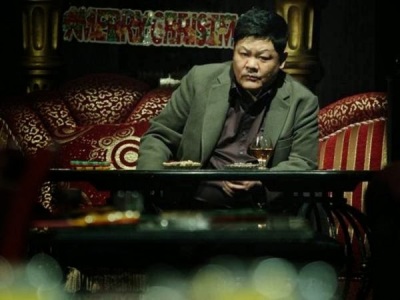

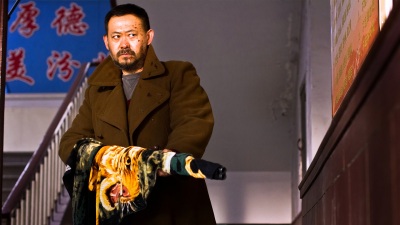

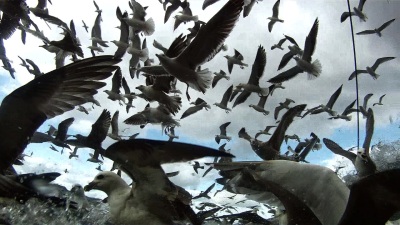
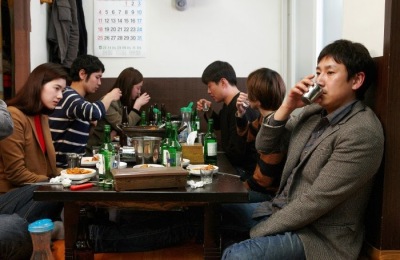

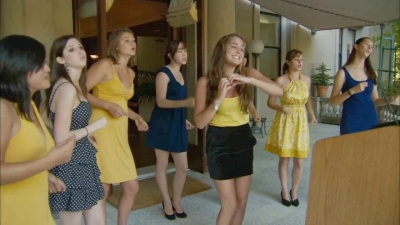
















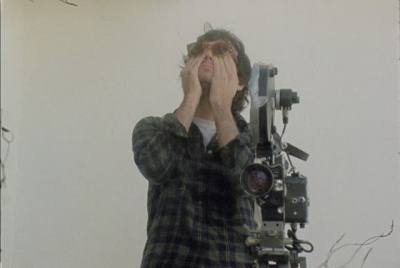


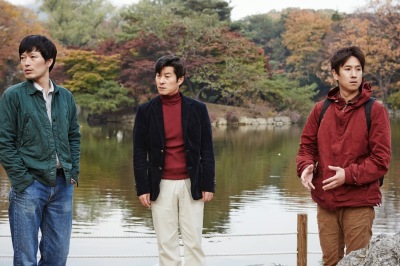




























 Supporting Actor:
Supporting Actor: Film Editing:
Film Editing: Art Direction:
Art Direction:

23-47-52%5D%5B4%5D.jpg)


























